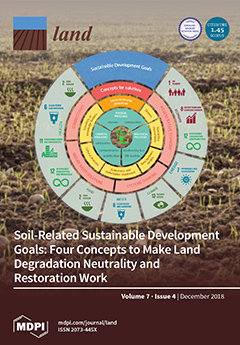Resource information
Governments, multilateral organisations, and international conservation NGOs increasingly frame nature conservation in terms that emphasise the importance of technically managing and economically valuing nature, and introducing markets for ecosystem services. New mechanisms, such as REDD+, have been incorporated in national-level policy reforms, and have been piloted and implemented in rural project settings across the Global South. By reflecting on my research on REDD+ implementation in two case study villages in Tanzania, the paper argues that the emergence and nature of market-based conservation are multi-faceted, complex, and more profoundly shaped by structural challenges than is commonly acknowledged. The paper identifies three particularly important challenges: the politics surrounding the establishment of community-based forest management; the mismatch between formal governance institutions and actual practices on the ground; and the fickleness of income from carbon sales and alternative livelihood opportunities. I argue that these challenges are not merely teething troubles, but they question fundamental assumptions of market-based conservation, more generally. I end with reference to better ideas for achieving sustainable development.


